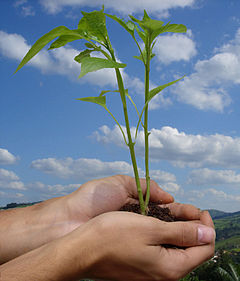Language teacher and researcher Miguel Angel Muñoz explains the latest research on how being bilingual affects your brain, ahead of a British Council seminar in Cardiff on whether learning a foreign language makes you smarter. You can watch the live-streamed seminarOpens in a new tab or window. on Tuesday, 3 June.
More than half the world's population uses two or more languages every day
So what about you? Are you bilingual? Or rather - how bilingual are you?
Being bilingual isn't black-and-white
To answer that question, first we need to establish what being bilingual means. Contrary to what one might expect, a recent study shows that
bilingualism is not a categorical variableOpens in a new tab or window. (i.e., 'you are either bilingual or not'), but a multidimensional construct composed of two linked parts. The first of these is language proficiency, and the second is language use.
I, for example, am -- or used to be -- proficient in German, but I have not used my German regularly for a very long time. Point number one: the more proficient you are in a second language, and the more you use it in your daily life, the more bilingual you will be.
Now that you know the extent to which you are bilingual, the next question is what the advantages and disadvantages of being bilingual are. In this post, I will talk about the cognitive benefits and costs that have been identified by scientific research. It turns out that being bilingual has some costs, but many benefits.
What are the costs of being bilingual?
When I speak in English, my Spanish is also activated. Both languages are active in the brain of a bilingual person when he or she speaks, and this incurs a processing cost, as the brain needs to do two things at once. According to
one studyOpens in a new tab or window., this can mean that 'the verbal skills of bilinguals in each language are generally weaker than those for monolingual speakers of each language'.
Bilingual people tend to have weaker verbal skills
Bilingual people
tend to produce fewer wordsOpens in a new tab or window. of any given semantic category than people who only speak one language fluently. In other words, their individual vocabularies in each language tend to be smaller than that of people who only speak one of those languages.
What are the benefits of being bilingual?
Don’t worry. There are also benefits to being bilingual, and they far outweigh the costs mentioned above. There are three main cognitive benefits.
The bilingual brain is used to handling two languages at the same time. This develops skills for functions such as inhibition (a cognitive mechanism that discards irrelevant stimuli), switching attention, and working memory.
These skills make up the brain's executive control system, which looks after high-level thought, multi-tasking, and sustained attention. Because bilingual people are used to switching between their two languages, they are also better at switching between tasks, even if these tasks are nothing to do with language.
People who speak two languages have also been shown to have more efficient monitoring systems. A
2009 studyOpens in a new tab or window. showed that monolinguals and bilinguals respond similarly when the brain's monitoring system is not taxed, but in conditions requiring high monitoring demands, bilinguals were faster. Bilingual people also
outperformOpens in a new tab or window. monolingual people in spatial working memory tasks.
So, does this make you smarter if you are bilingual? I’m afraid not. I don't know any study that shows a link between bilingualism and such concepts as executive intelligence, emotional intelligence or intelligence quotient.
3. Bilingualism promotes cognitive reserve in elderly people
What are the limitations to research into bilingualism?
There are some limitations to the research presented above. For example, the bilingual advantage is not always found in young bilingual adults. Some people argue that this is due to the fact that young adults are at the peak of their cognitive development, so the positive effects of bilingualism aren't as noticeable. Scientists also
agreeOpens in a new tab or window. there's not enough research yet into how and why the bilingual experience affects the brain's processes in the way it does.
But we can certainly dispel some myths about being bilingual - such as the outdated and disproven idea that growing up bilingual confuses and hinders cognitive development.
On the contrary, being bilingual is a beneficial condition that one is never too old nor too proficient to experience and develop.














